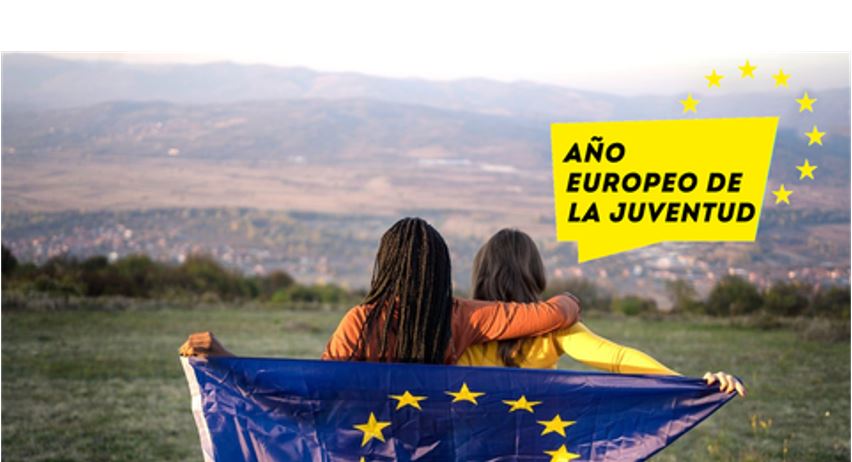Esta entrada también está disponible en: Aragonés Català Español Français English
TRAVELLERS’ NERVES
My grandmother told me yesterday that in her time there were no euros. She says that when they went to France they had to go to the bank to change money. And that you had to show your ID card in half of Europe, no way, you had to carry your passport and sometimes you had to tell them your whole life story at the border to be allowed to enter.
And that was only for crossing into France!
To make matters worse, my grandmother gets on my nerves every time she travels. It’s a horror. She arrives at the airport three years before the plane leaves and comes back four thousand two hundred times for things she thinks she’s forgotten, but in reality they’ve been in her suitcase for a week. Oh, the money, oh, the passport, oh, the umbrella (don’t ask me why, but she doesn’t trust the weather forecast and always carries one, even if she’s travelling to Morocco and it’s forty degrees in the shade all week).
So I can imagine her years ago going to France as if she were boarding the Titanic. With three hundred suitcases, a boot full of papers explaining the itinerary and the objectives of the trip and an accountant in charge of handling the francs and currency exchange.
What a hassle, when it’s so nice to go to Oloron to buy chocolate in Lindt one day when you’re just passing by!
That’s why I love the European Union, because I love travelling. I love being able to take a plane to almost anywhere on the continent, practically in my clothes and with no preparation.
Where in Europe would you go tomorrow without even thinking about it? I’ve always wanted to go to Berlin and I’d like to study in Italy for a year.
Thank goodness Schuman was a smart guy and started making things easier for me. Want to know who he was and why Europe Day is celebrated on 9 May? It’s all below.
Description
On 9 May 1950, French Foreign Minister Robert Schuman put forward the idea of a new form of political cooperation in Europe that would bury the horror of centuries of war and destruction between its states. In the space of just thirty years, the continent had witnessed the two most dreadful and bloody conflicts ever to have taken place.
With the intention of overcoming this bitter memory and the will to reconcile positions, the Schuman Declaration is considered the starting point of what is today the European Union. 9 May is therefore an opportunity to celebrate the peace on which the European project is based, although it is a shame to see another conflict on European soil caused by the invasion of Ukraine by Russian troops.
The challenge is to reinforce the values of unity and solidarity, and from there to spread that spirit to the rest of the world. It is also about helping to develop people’s skills and competences (the EU’s central objective in 2023). All this builds on the basis of 2022 as the European Year of Youth: hope lies in the future.

For further information
The objectives and contents of this proposal can be related to those of the International Day of Peace (21 September), or more “laterally”, to the International Migrants Day (18 December).
In Aragon…
Aragon has historically been a territory of transit and exchange with the rest of Europe. Among other things, this has helped to build a very plural society, and many challenges and demands lie precisely in that connection.
The Government of Aragon has aseries of tools at its disposal to increase contact with other European regions, especially on strategic issues, exchanging ideas, sharing information, seeking common objectives… (Aragon in European networks). The Aragon Office in Brussels plays a very important role.
Europe Direct Aragon is an information point on the European Union, aimed at all citizens, companies, associations, schools and public and private institutions, individuals… within a very wide network. Among other tasks, the Aragonese Youth Institute channels European information and manages projects and initiatives such as the European Youth Card of Aragon.

A detail
European Territorial Cooperation is the instrument of cohesion policy that aims to solve cross-border problems and jointly develop the potential of the different territories. Cooperation actions are supported by the European Regional Development Fund (ERDF) through three main components: cross-border, transnational and interregional cooperation.
For the period 2021-2027, the ERDF in Aragon has as its motto: “Building Europe from Aragon” and aims to contribute to a Europe that is more competitive (by promoting research and innovation), greener and more sustainable, more connected, more inclusive and social and closer to citizens.
A reflection
Today, a large part of the political agenda and economic activity in Spain and Aragon is marked by European strategies and policies. For decades, European funds (such as Leader projects for rural development, or aid from the Common Agricultural Policy, for example), European regulations in a multitude of areas, etc., have been marking this evolution.
But also in the social, educational, cultural and mental spheres… the idea of Europe, of a European citizenship, is becoming more and more established, especially among the new generations: the Erasmus university exchange programmes, greater mobility, progress in the mastery of foreign languages, among many other initiatives… all help to shape this unity.
Europe must recognise itself, but not close itself off from the rest of the world and show unity and solidarity when facing major challenges (e.g. the consequences of the war in Ukraine, the energy crisis, the migration issue, the control of production and consumption, etc.).

Suggestions for teachers
Europe Day can be accompanied by suggestions related to documentation research and simple studies on the history of Europe (relations between countries over time, the trauma of the two wars in the first half of the 20th century; the birth and development of the Common Market; Europe split in two within the bloc politics; the changes of the European political map between the 1980s and today, the Euro, “Europe as something more than the European Union”, etc.).
European politics is a recurring theme today: internal rivalries, posturing vis-à-vis third parties (most obviously in times of crisis such as the current one caused by the war in Ukraine), among other things, are the order of the day. Information analysis and reflections to be shared are proposed in relation to questions such as migration and refugee policy (are there double standards when the flows come from outside? Is Europe not basically a rich man’s club?), the stance on war, internal imbalances (are they really being corrected?).
This work dynamic can also be taken to other more personal areas, such as personal experiences, trips… or even to fields that are a priori more “frivolous”, but also indicative of an idea of Europe and with a great popular echo: football competitions (the Champions League, the Eurocup), Eurovision (which also allows us to put many countries on the map)…

In addition, it is recommended to pay attention to calls and certain activities (informative talks, for example), such as those programmed annually and offered free of charge to schools by the Government of Aragon through Europe Direct. In the framework of the European Year of Youth, attention is recommended to the information provided by the National Youth Institute, highlighting initiatives such as the Youthvoices platform, through which young people from all over Europe can record their vision of Europe, how close or far they feel to EU employment policies, as well as other issues such as mobility or climate.
Cross-curricular elements
Learning about the prevention and peaceful resolution of conflicts in all areas of personal, family and social life will be promoted, as well as the values that underpin freedom, justice, equality, political pluralism, peace, democracy, respect for human rights and rejection of terrorist violence, plurality, respect for the rule of law, respect and consideration for the victims of terrorism and the prevention of terrorism and any kind of violence. The teaching programme should in any case include the prevention of gender-based violence, terrorist violence and any form of violence, racism or xenophobia.
Objectives that this proposal helps to achieve
ESO:
- To assume responsibly their duties, to know and exercise their rights in respect for others, to practice tolerance, cooperation and solidarity among individuals and groups, to exercise in dialogue, strengthening human rights and equal treatment and opportunities between women and men, as common values of a pluralistic society, and to prepare for the exercise of democratic citizenship.
- Understand and express themselves in one or more foreign languages in an appropriate manner.
- To know, value and respect the basic aspects of one’s own and others’ culture and history, as well as artistic and cultural heritage.
Baccalaureate:
- To Exercise democratic citizenship, from a global perspective, and acquire a responsible civic conscience, inspired by the values of the Spanish Constitution, as well as by human rights, which fosters co-responsibility in the construction of a fair and just society.
- To express themselves fluently and correctly in one or more foreign languages.
- To use information and communication technologies with competence and responsibility.
- To know and critically assess the realities of the contemporary world, its historical background and the main factors of its evolution. Participate in a supportive way in the development and improvement of their social environment.
Subjects in which it can be linked
- Geography and History / Ethical values (ESO, 1st cycle)
- Geography and History/ Education for citizenship and human rights (ESO, 2nd cycle)
- Baccalaureate: To be assigned according to modality
Development of competences
- Social and civic competences
